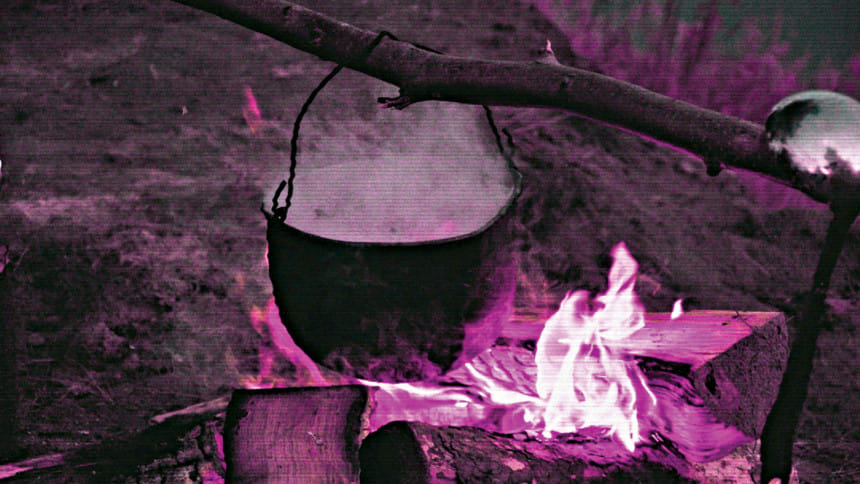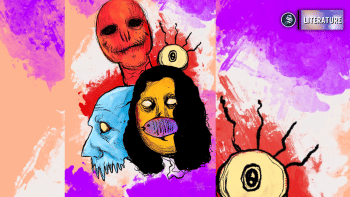Mother saves her corpses before lunch

Mother woke before sunrise with the weight of the house pulling at her bones and moved against the cold floor, the chill biting at her ankles. In the corner hung the gutted rabbit, its blood pooling on the floor. Her fingers trembled, as she bathed herself in it, coating her skin red.
She walked through the forest towards the blackthorn tree. With a sigh and aching muscles, she swung the axe. The tree groaned and fell, collapsing inward as if too tired to resist. Mother dragged its corpse back to the house.
In the kitchen, she dug her hands into the earth until her fingers bled. She laid the blackthorn's corpse inside, doused with kerosene, the sharp smell filling the air. She struck a match, watching the flames consume it, casting shadows that twisted and flickered against the walls. She chewed on her hair and walked away as it burned.
Today would be like every other day. She had her children to tend to.
They lay still in their beds, wrapped in death's quiet embrace. Their pale faces unbothered with the world they'd left behind. Mother knelt beside them and kissed their cold ears, biting gently until her teeth left marks. She cut her palms with an obsidian blade and with the black blood flowing, drew symbols of 'revival' on their wrists.
The children's ghosts were there, swirling around her. They laughed, their voices sharp and mocking, pulling at her hair, pushing at her shoulders, playing games with her as she worked. Sometimes they took control of her body, forcing her to dance or sing foolish songs, their laughter ringing in her ears. Yet, she never faltered.
They needed her. And she loved them.
She dressed their corpses in white, warding off the death that clung to them. With frail movements, she placed green cloth over their eyelids and stitched them with olive thread to keep death's stare at bay. Their flesh smelled of rot, seeping through the layers of lavender oil she rubbed on their skin, but she didn't mind.
By noon, the bodies were arranged carefully around a pentagon. At its centre lay the smouldering remains of the blackthorn, dark as midnight. A broth simmered on the stove, thick and viscous with bits of indifferent flesh.
She chanted the spell and felt the familiar weight of centuries of motherhood pressing down on her. She ladled the soup to the children's mouths, her voice low, steady, unwavering. One by one, their limbs twitched, their fingers curling as life crept back into them. Their eyes opened, dull at first, then gleaming. They would laugh and run through the halls again, filling the house with their voices.
But life always came at a cost.
The rules of the ritual demanded human sacrifices before lunch each day. It would tire her to no end but that's what mothers do. They tend to their children, even when no one sees. They carry the weight, bear the burden, and make sure everything is done—before lunch.
This is one of the top entries for Khero Khata, Star Books and Literature's monthly writing contest.
Zareef Daian is a writer based in Uttara, Dhaka. He once dreamt he was a rabbit hanging on a clothesline in a witch's cottage.

 For all latest news, follow The Daily Star's Google News channel.
For all latest news, follow The Daily Star's Google News channel. 







Comments